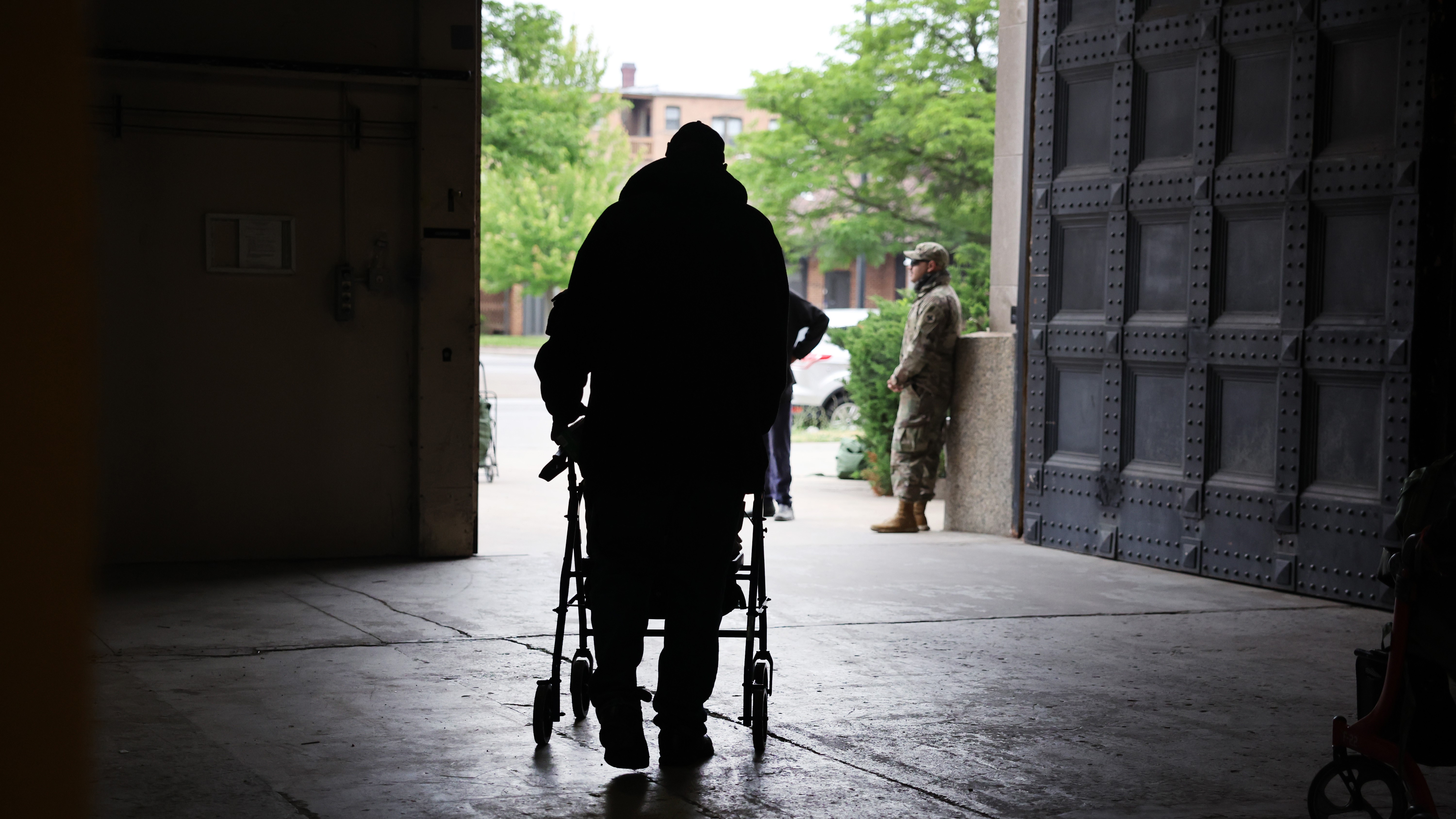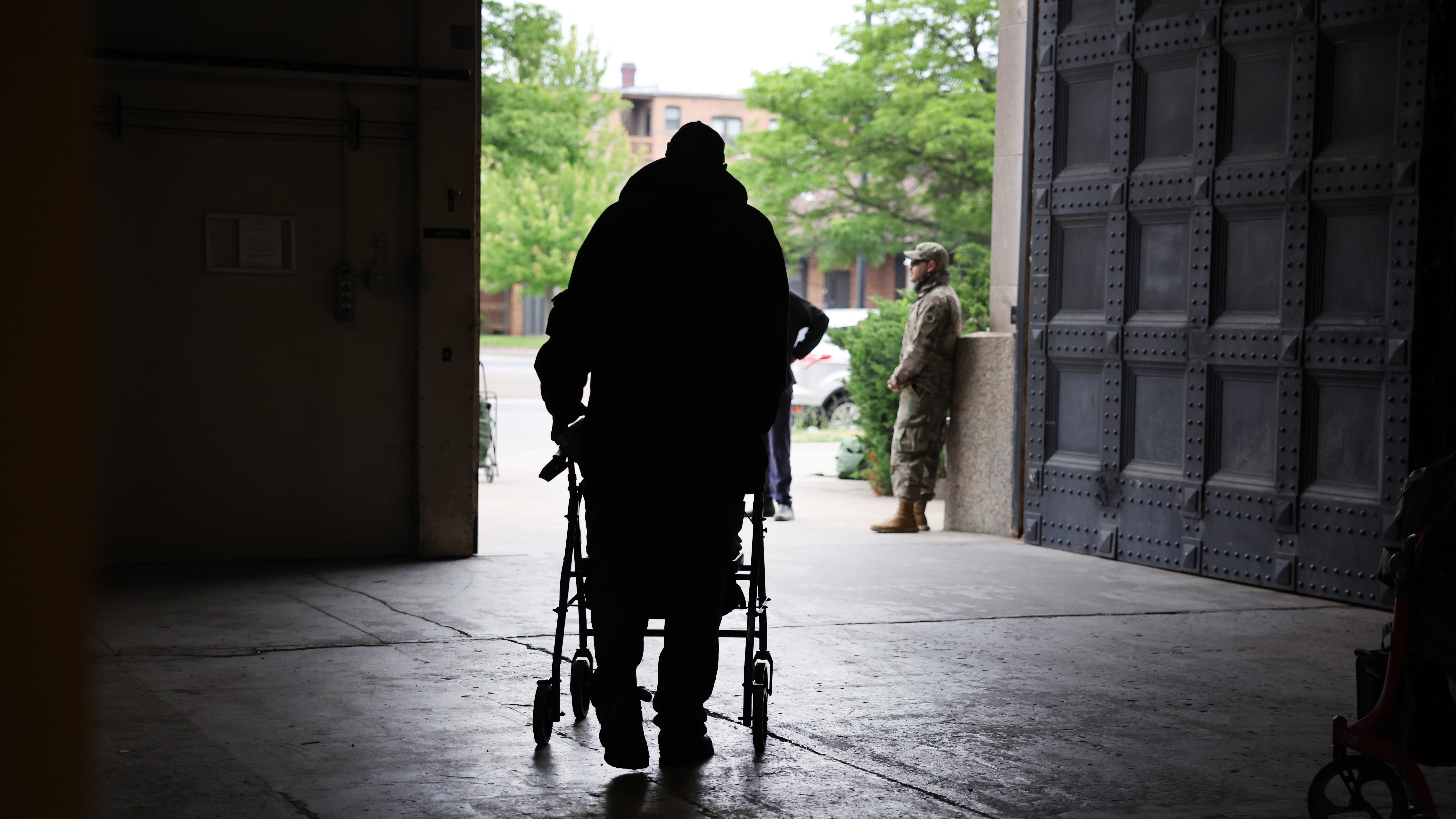

The Department of Veterans Affairs awarded more than $800 million to local nonprofits around the United States to fund rapid rehousing efforts for veterans and help low-income families avoid slipping into homelessness.
The funds were awarded across 253 grants, with the awarding of them announced on Friday, Aug. 16. The nonprofits, which work to build trust with unhoused veterans to provide them with help, rely on these types of grants to pay for urgent bills or emergency costs facing veterans and their families.
Roughly $8.9 million is going to the VA’s Grants and Per Diem Program, which funds nonprofits that help unhoused veterans get into transitional housing, to eventually find permanent homes. The money also supports case workers who help link the veterans to those spaces — often hotel or motel rooms — and offer services such as job training or education. The VA noted that these specific funds are aimed at certain groups, such as women or elderly veterans.
The larger grant allotment, approximately $797.5 million, is going to the VA’s Supportive Services for Veteran Families Program. This is aimed toward low-income veteran families either just falling into homelessness or on the verge. It provides money to rapidly rehouse those families or help them make payments to avoid losing their homes.
“We’re making real progress in reducing Veteran homelessness, but there is much more work to do,” VA Secretary Denis McDonough said in the department’s announcement. “These grants allow VA and the entire Biden-Harris Administration, alongside community partners, to provide more housing and wraparound services to more homeless and at-risk Veterans than ever before.”
Subscribe to Task & Purpose Today. Get the latest military news and culture in your inbox daily.
According to the Department of Housing and Urban Development’s 2023 point-in-time count, there are 35,574 unhoused veterans in the United States (there are 653,000 total homeless Americans). While many people on the streets can be experiencing homelessness for extended periods of time, many also might fall into homelessness for days or weeks at a time before being rehoused, so many more people might experience homelessness per year than the point-in-time count will indicate. HUD and the VA have not released data for the 2024 count yet.
The VA, along with the Department of Housing and Urban Development, focuses on the “housing first” approach to addressing homelessness. Essentially, the most important action, according to the strategy, is to get people into housing, with low barriers of entry, to help them avoid the risks people on the streets face. It’s an approach favored by service providers, researchers and many state and local housing agencies.
Unhoused people, veterans or otherwise, often need additional services to help once inside, be it mental healthcare or job placement. Operations like the Grant and Per Diem Program are meant to help vets get back on their feet and avoid slipping back into homelessness, as well as get any care they might need.
The VA has been making some updates to its rules and procedures to help get more veterans housing. Last week the VA made a major change to how it judges qualifications for federal housing vouchers. Previously disability compensation counted towards income, leaving some of the most in-need unhoused veterans technically unable to qualify for the vouchers. New rules announced this month end that, expanding eligibility for the subsidies.
Those are all part of the wider VA effort to help homeless vets. In the spring, the department announced its goal of placing 41,000 unhoused veterans into permanent housing, along with connecting another 40,000 with supportive services.
